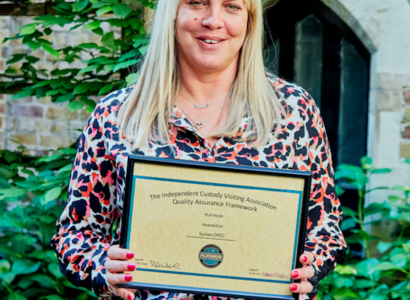The UKNPM has published the report from the UN SPT on their inaugural visit to the UK in 2019. So, with all of those acronyms in mind let’s take first things first and look at what the NPM is, what OPCAT is and who are the SPT?
What is the UKNPM?
The UK’s National Preventive Mechanism (NPM) was established in March 2009 after the UK ratified the Optional Protocol to the Convention against Torture and other Cruel, Inhuman or Degrading Treatment or Punishment (OPCAT) in December 2003. The NPM is made up of 21 statutory bodies that independently monitor places of detention. OPCAT recognises that people in detention are particularly vulnerable and requires States to set up a national level body that can support efforts to prevent their ill treatment. ICVA represents independent custody visiting schemes as an NPM member for England and Wales. The Scottish Policing Authority and the Northern Ireland Policing Board independent custody visiting schemes are members of the NPM in their own rights.
What is the SPT?
The UN Subcommittee for the Prevention of Torture (SPT) are a body set up under OPCAT and are mandated to carry out visits to places of detention, and to advise and assist the establishment of NPMs in accordance with Articles 11, 12 and 13 of OPCAT. The SPT can visit any country that has ratified OPCAT to check on the progress and work of the NPM in that country. The members of the SPT come from all over the world and some work with NPMs in their own countries. The SPT have the powers and security clearance to enter any detention setting in the UK.
You can find the full articles of OPCAT here, more information on the NPM here, and information and links on the SPT here.
The SPT Visit
The SPT visited places of detention alongside monitoring bodies, both formal inspectorates and lay visiting bodies. The SPT shadowed independent custody visitors on a visit and met with ICVA’s COO to discuss police custody and independent custody visiting in the UK. The SPT also undertook visits to a variety of places of detention unaccompanied by NPM members.
The SPT Report
The SPT produces two reports, one for Government and one report for the NPM of the country they visit. The report linked and detailed below is the report for the NPM. For context, the UKNPM have long advocated to be put on a legislative footing in order to ensure its functional independence and the SPT comment:
The SPT (…) supports, as a matter of priority, the NPM efforts and initiative to bring about the necessary legislative changes to bring the United Kingdom in full compliance with the OPCAT.’
They note the complex arrangements of the UKNPM (being made up of 21 bodies of varying remits) as a challenge however do acknowledge the breadth of monitoring this offers.
The SPT make further recommendations in terms of the visibility of the NPM as OPCAT monitors and that the NPM ensures that it has access to all areas of detention including military detention, Crown dependencies and overseas territories. The report further recommends that the NPM engage with civil society.
In terms of independent custody visiting specifically, the SPT note:
‘the professionalism of the visiting team (…) is highly commendable’
ICVA welcomes this acknowledgement of the ICVs undertaking their role. There are comments from the SPT for ICVA to consider in terms of standardised training for ICVs as well as the wider NPM recommendations, and we will be reflecting on these and building in our response to the SPT report to our business plan for 2021/2022.
The UKNPM Response
The UKNPM has provided a full written response to the SPT report to which ICVA has contributed to along with other members. The response from the UKNPM welcomes the report from the SPT and responds in detail on each of the points/recommendations raised. In particular:
‘The NPM welcomes the SPT recommendation that the duties and powers of the NPM should be enshrined in statute.’
The response notes that the NPM will work toward increasing visibility, and that this is a strategic goal for the forthcoming year in addition to considering how best to ensure monitoring is in place across all places of detention. ICVA will continue to increase awareness of the UKNPM and its role through our training resources, information sharing and website/twitter.
This is an important report for monitoring in the UK, ICVA looks forward to working with the UKNPM on the recommendations and considering how we as an organisation can respond to the report in our own work. You can read a blog from the UKNPM Chair, John Wadham as he reflects on the value that independent custody visiting brings to monitoring in the UK here.




